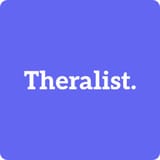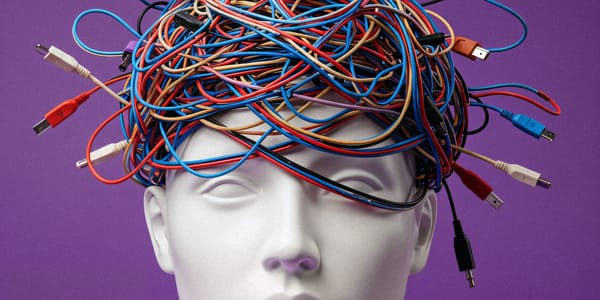Finding Effective ADHD Support in Toronto: A Complete Guide to Resources and Treatment Options
Complete guide to ADHD diagnosis, treatment, and support services in Toronto. Discover public healthcare options, private services, therapy resources, and community support for ADHD management.

Navigating ADHD diagnosis and treatment in Toronto can feel overwhelming, but understanding your options and available resources can help you find the support you or your loved one needs to thrive.
You've been struggling with focus and organization for as long as you can remember, or perhaps you're watching your child fall behind in school despite their obvious intelligence and effort. The daily challenges of managing attention, hyperactivity, or impulsivity are affecting work performance, relationships, and self-esteem. You suspect ADHD might be the underlying issue, but you're not sure where to turn for help in Toronto's complex healthcare system.
Or maybe you've already received an ADHD diagnosis, but you're finding it difficult to access comprehensive support that addresses all aspects of living with this neurodevelopmental condition. You might be frustrated with long wait times, limited treatment options, or healthcare providers who don't seem to understand the full impact ADHD has on your daily life.
Toronto offers numerous resources for ADHD support, from diagnostic services and medical treatment to specialized therapy and community support groups. However, navigating these options can feel overwhelming, especially when you're already dealing with the executive functioning challenges that ADHD creates. Understanding what's available and how to access appropriate care can make the difference between struggling alone and receiving the comprehensive support that enables you to thrive.
Whether you're seeking initial diagnosis, looking for specialized treatment approaches, or needing ongoing support for managing ADHD in daily life, Toronto's mental health landscape offers various pathways to help. The key is knowing where to look, what questions to ask, and how to advocate effectively for the care you need.
Understanding ADHD and Its Impact
Attention Deficit Hyperactivity Disorder (ADHD) is a neurodevelopmental condition that affects approximately 5-7% of children and 2-5% of adults worldwide. Despite being one of the most well-researched mental health conditions, ADHD remains widely misunderstood, leading to delayed diagnosis and inadequate treatment for many people.
ADHD presents in three primary ways: predominantly inattentive presentation, predominantly hyperactive-impulsive presentation, and combined presentation that includes both inattentive and hyperactive-impulsive symptoms. The inattentive presentation, often called ADD, involves difficulties with focus, organization, following through on tasks, and managing details. The hyperactive-impulsive presentation involves restlessness, difficulty sitting still, impulsive decision-making, and challenges with self-regulation. The combined presentation includes symptoms from both categories.
Executive functioning difficulties are central to ADHD and affect planning, organization, time management, working memory, and emotional regulation. These challenges can make everyday tasks like managing schedules, completing projects, maintaining relationships, and regulating emotions significantly more difficult than for neurotypical individuals.
The impact extends beyond attention and hyperactivity to affect academic and work performance, relationships, self-esteem, and overall quality of life. Adults with undiagnosed ADHD often experience chronic feelings of underachievement, relationship difficulties, job instability, and mental health challenges like anxiety and depression that stem from years of struggling without understanding why.
Comorbid conditions frequently accompany ADHD, including anxiety disorders, depression, learning disabilities, and addiction issues. This complexity requires comprehensive assessment and treatment approaches that address multiple aspects of mental health and functioning.
Gender differences in ADHD presentation have led to underdiagnosis in girls and women, who more commonly present with inattentive symptoms that are less disruptive but equally impairing. Women with ADHD often experience additional challenges related to hormonal changes, pregnancy, and societal expectations that can complicate diagnosis and treatment.
Understanding ADHD as a legitimate neurodevelopmental condition rather than a character flaw or lack of willpower is essential for accessing appropriate support and developing effective coping strategies.
ADHD Diagnosis in Toronto: Where to Start
Getting an accurate ADHD diagnosis in Toronto involves navigating various healthcare pathways, each with different timelines, costs, and approaches. Understanding your options helps you make informed decisions about where to seek assessment.
Family physicians and walk-in clinics can provide initial screening and referrals for ADHD assessment. While most family doctors cannot provide comprehensive ADHD diagnosis themselves, they can rule out other medical conditions, provide referrals to specialists, and sometimes prescribe medication if diagnosis is confirmed elsewhere. Many people find their family doctor to be a good starting point for discussing ADHD concerns and getting referrals to appropriate specialists.
Psychiatrists provide comprehensive ADHD assessment and can prescribe medication as part of treatment plans. In Ontario, psychiatrist visits are covered by OHIP, but wait times can be several months to over a year depending on the practice and urgency of referral. Some psychiatrists specialize specifically in ADHD and offer more comprehensive assessment and treatment approaches.
Psychologists conduct thorough psychological assessments for ADHD that often include detailed cognitive testing, behavioral assessments, and comprehensive evaluation of symptoms across different life domains. Psychological assessments are typically not covered by OHIP but may be covered by private insurance. These assessments often provide detailed reports that can be valuable for accessing accommodations at work or school.
Specialized ADHD clinics in Toronto offer comprehensive assessment and treatment services specifically designed for ADHD. These clinics often have shorter wait times than general psychiatric services and provide specialized expertise in ADHD diagnosis and treatment. Some operate privately while others work within the public healthcare system.
Private assessment options are available throughout Toronto and can provide quicker access to diagnosis, often within weeks rather than months. While these services require out-of-pocket payment or private insurance, they often provide comprehensive assessment reports and can connect you with ongoing treatment options.
Adult ADHD assessment requires specialized understanding of how ADHD presents in adults, which differs from childhood presentations. Many healthcare providers are more familiar with childhood ADHD, so seeking providers with specific adult ADHD experience is important for accurate diagnosis.
Assessment for women and girls may require providers with specialized understanding of how ADHD presents differently in females, as traditional diagnostic criteria were developed based primarily on male presentations of the condition.
The assessment process typically involves detailed interviews about current symptoms, childhood history, family history, and functional impacts across various life domains. Many assessments also include standardized rating scales, cognitive testing, and sometimes input from family members or partners.
Public Healthcare Options and OHIP Coverage
Understanding what ADHD services are covered by Ontario's public healthcare system helps you access available resources while planning for additional support that may require private funding.
OHIP-covered services include visits to family physicians, psychiatrists, and some specialized ADHD clinics that operate within the public healthcare system. Hospital-based mental health services and crisis intervention services are also covered, though these are typically reserved for more urgent situations.
Community Health Centres (CHCs) throughout Toronto provide mental health services including ADHD assessment and treatment on a sliding fee scale or at no cost. These centers often have multidisciplinary teams that can provide comprehensive care including counseling, psychiatric services, and social support.
CAMH (Centre for Addiction and Mental Health) offers specialized ADHD services including assessment, treatment, and research programs. As a public hospital, CAMH services are covered by OHIP, though wait times can be significant for non-urgent referrals.
Hospital-based outpatient psychiatry departments at institutions like Toronto General Hospital, Mount Sinai Hospital, and Sunnybrook Hospital provide psychiatric assessment and treatment services covered by OHIP. These services often require referrals from family physicians.
Public school system support is available for children with ADHD through Individual Education Plans (IEPs) and specialized programs. While not directly providing diagnosis, schools can provide accommodations and support services once ADHD is diagnosed through healthcare providers.
Wait time management for public services often requires persistence and advocacy. Staying in contact with referral sources, being flexible with appointment scheduling, and understanding that urgent cases receive priority can help navigate public system delays.
Crisis services are available through hospital emergency departments and crisis intervention teams if ADHD symptoms are creating immediate safety concerns or severe functional impairment.
Limitations of public coverage include limited coverage for psychological testing, therapy services beyond basic counseling, and specialized ADHD coaching or skills training. Understanding these limitations helps you plan for additional private services that may be beneficial.
The public system provides essential basic care for ADHD but often requires supplementation with private services for comprehensive treatment approaches.
Private ADHD Services in Toronto
Toronto's private healthcare sector offers numerous options for ADHD assessment, treatment, and support services that can provide quicker access and more specialized care than public options alone.
Private psychiatrists specializing in ADHD are available throughout Toronto and can provide comprehensive assessment and medication management with shorter wait times than public services. Many private psychiatrists focus specifically on ADHD and offer expertise in complex cases or treatment-resistant situations.
Registered psychologists provide detailed psychological assessments for ADHD that include comprehensive cognitive testing and detailed reports useful for workplace or academic accommodations. Many psychologists also provide ADHD-focused therapy and coaching services to help develop coping strategies and life skills.
ADHD coaching services help individuals develop practical strategies for managing ADHD symptoms in daily life. Coaches focus on executive functioning skills, organization, time management, and goal achievement rather than treating underlying mental health conditions.
Specialized therapy approaches including Cognitive Behavioral Therapy (CBT) specifically adapted for ADHD are available through private therapists throughout Toronto. These approaches help individuals develop coping strategies, address negative thought patterns, and improve functional outcomes.
Neuropsychological assessment provides comprehensive evaluation of cognitive functioning and can identify specific strengths and weaknesses that inform treatment planning. These detailed assessments are particularly valuable for complex cases or when multiple conditions may be present.
Private clinics specializing in ADHD offer multidisciplinary teams including psychiatrists, psychologists, social workers, and coaches who work together to provide comprehensive care. These clinics often provide streamlined assessment and treatment processes.
Corporate and workplace programs are increasingly available in Toronto, with some employers providing ADHD assessment and support services through Employee Assistance Programs or private healthcare benefits.
Telehealth options have expanded significantly, allowing access to ADHD specialists who may not be geographically accessible in person. Many private providers now offer virtual assessment and treatment options.
Private services typically require out-of-pocket payment or coverage through private insurance benefits, but often provide more comprehensive care, shorter wait times, and specialized expertise compared to public options alone.
Medication Management and Prescribing
ADHD medication can be highly effective for managing symptoms, but finding the right medication and dosage often requires specialized expertise and careful monitoring, particularly given the complexity of ADHD presentations and potential side effects.
Stimulant medications including methylphenidate (Ritalin, Concerta) and amphetamines (Adderall, Vyvanse) are considered first-line treatments for ADHD and are effective for approximately 70-80% of people with the condition. These medications help improve focus, reduce hyperactivity, and enhance executive functioning abilities.
Non-stimulant medications including atomoxetine (Strattera) and bupropion (Wellbutrin) are alternatives for people who don't respond well to stimulants or experience significant side effects. These medications may take longer to show effects but can be effective for many individuals.
Prescribing physicians in Toronto include family physicians, psychiatrists, and some nurse practitioners who have experience with ADHD medication management. While family physicians can prescribe ADHD medications, complex cases often benefit from specialist oversight.
Medication monitoring requires regular follow-up appointments to assess effectiveness, monitor side effects, and adjust dosages as needed. This process often takes several months to optimize and requires ongoing communication with prescribing physicians.
Insurance coverage for ADHD medications varies significantly depending on your specific insurance plan. OHIP covers physician visits for medication management, but medication costs vary widely depending on the specific drug and your insurance coverage.
Pharmacy considerations include finding pharmacies experienced with ADHD medications, understanding generic versus brand name options, and managing prescription timing to avoid running out of medication.
Side effect management is an important aspect of medication treatment, with common side effects including appetite suppression, sleep difficulties, and mood changes. Working with experienced prescribers helps minimize side effects while maximizing benefits.
Medication holidays or structured treatment interruptions may be recommended to assess ongoing need for medication, particularly for children and adolescents whose symptoms may change with development.
Adult-specific considerations include interactions with other medications, effects on work performance, and managing ADHD medication during pregnancy or when planning pregnancy.
Finding a prescriber experienced with ADHD medication management is crucial for achieving optimal outcomes while minimizing side effects and complications.
Therapy and Counseling Options
While medication can be highly effective for managing ADHD symptoms, therapy and counseling provide essential skills and strategies for managing the daily challenges of living with ADHD and addressing associated mental health concerns.
Cognitive Behavioral Therapy (CBT) specifically adapted for ADHD helps individuals identify and change negative thought patterns, develop coping strategies, and improve functional outcomes. ADHD-focused CBT addresses specific challenges like procrastination, organization, and time management while also addressing self-esteem and confidence issues.
ADHD coaching focuses on practical skill development including organization systems, time management strategies, goal setting, and accountability structures. Coaches work with individuals to develop personalized systems for managing ADHD challenges in work, school, and personal life.
Group therapy for ADHD provides peer support and shared learning experiences with others who understand the challenges of living with ADHD. Group settings allow participants to learn from each other's strategies and reduce the isolation that many people with ADHD experience.
Family therapy can be valuable when ADHD affects family relationships and dynamics. This approach helps family members understand ADHD, develop supportive communication patterns, and create family structures that support the ADHD individual's success.
Couples therapy addresses how ADHD impacts romantic relationships, helping partners develop understanding, communication strategies, and relationship structures that work for both neurotypical and ADHD partners.
Dialectical Behavior Therapy (DBT) skills training can be particularly helpful for individuals with ADHD who also struggle with emotional regulation, providing specific techniques for managing intense emotions and interpersonal relationships.
Mindfulness-based interventions help individuals with ADHD develop better awareness of their attention and emotional states while learning techniques for managing distractibility and impulsivity.
Occupational therapy focuses on practical life skills and environmental modifications that can help individuals with ADHD function more effectively in work, school, and home environments.
Social skills training addresses the interpersonal challenges that often accompany ADHD, helping individuals develop better communication skills and relationship abilities.
Many therapists in Toronto specialize in ADHD treatment and understand the unique challenges and strengths associated with this neurodevelopmental condition.
Educational and Workplace Support
ADHD significantly impacts academic and work performance, making educational and workplace accommodations essential components of comprehensive ADHD support.
Academic accommodations for students with ADHD can include extended time on exams, alternative testing environments, note-taking assistance, and modified assignment deadlines. These accommodations require proper documentation of ADHD diagnosis and functional impacts.
University disability services at Toronto institutions including University of Toronto, Ryerson University, and York University provide comprehensive support services for students with ADHD including academic accommodations, assistive technology, and skills training programs.
College support services at institutions like George Brown College, Seneca College, and Centennial College offer similar accommodation services specifically designed for the college environment and practical skills training.
Workplace accommodations under Ontario's Human Rights Code may include flexible scheduling, modified work environments, written instructions, and deadline extensions. These accommodations require medical documentation but can significantly improve work performance and job satisfaction.
Vocational rehabilitation services help individuals with ADHD develop career skills, find appropriate employment, and succeed in workplace environments. These services often include job coaching, skills assessment, and workplace integration support.
Executive functioning support in educational and workplace settings focuses on developing organizational systems, time management skills, and planning abilities that are often impaired in ADHD.
Assistive technology including apps for organization, reminder systems, and focus tools can significantly improve academic and work performance for individuals with ADHD.
Study skills and academic coaching help students with ADHD develop effective learning strategies, test-taking skills, and organizational systems specifically adapted for their learning style and ADHD challenges.
Career counseling specialized for individuals with ADHD helps identify career paths that align with ADHD strengths while providing strategies for managing ADHD challenges in work environments.
Understanding your rights to accommodation and knowing how to access appropriate support services can dramatically improve outcomes in educational and workplace settings.
Support Groups and Community Resources
Living with ADHD can feel isolating, making peer support and community connections valuable components of comprehensive ADHD management.
CHADD (Children and Adults with Attention Deficit/Hyperactivity Disorder) has local chapters in the Toronto area that provide support groups, educational resources, and advocacy for individuals with ADHD and their families. These groups offer both in-person and virtual meeting options.
Adult ADHD support groups meet regularly throughout Toronto and provide peer support, shared experiences, and practical strategies for managing ADHD in adulthood. These groups are often facilitated by mental health professionals or experienced individuals with ADHD.
Parent support groups focus on supporting families of children with ADHD, providing education about the condition, parenting strategies, and emotional support for the challenges of raising children with ADHD.
Online communities and forums provide 24/7 support and connection with other individuals living with ADHD. These platforms allow for sharing experiences, strategies, and resources while maintaining anonymity if desired.
ADHD awareness organizations in Toronto host educational events, workshops, and conferences that provide updated information about ADHD research, treatment options, and community resources.
Recreational and social programs specifically designed for individuals with ADHD provide opportunities for social connection, skill building, and enjoyable activities in supportive environments.
Peer mentorship programs connect individuals newly diagnosed with ADHD with experienced individuals who can provide guidance, support, and practical advice for managing ADHD challenges.
Family support services provide resources and support for family members affected by ADHD, including siblings, spouses, and parents who may need education and support for understanding and supporting their loved one with ADHD.
Advocacy organizations work to improve ADHD awareness, reduce stigma, and advocate for better services and accommodations for individuals with ADHD in Toronto and across Ontario.
Community support provides essential emotional support, practical resources, and reduced isolation for individuals and families affected by ADHD.
Financial Considerations and Insurance Coverage
Understanding the costs associated with ADHD diagnosis and treatment helps you plan for accessing comprehensive care while managing financial considerations.
OHIP coverage includes visits to family physicians and psychiatrists for ADHD assessment and treatment, but does not cover psychological assessments, private therapy, or most specialized services. Understanding what is and isn't covered helps you budget for additional services.
Private insurance benefits vary significantly between plans but may cover psychological assessments, private therapy, ADHD coaching, and prescription medications. Reviewing your specific benefits and understanding coverage limits helps maximize your available resources.
Workplace benefits through Employee Assistance Programs may provide short-term counseling, referral services, and sometimes specialized ADHD support services. Many employers also provide extended health benefits that can cover private ADHD services.
Cost considerations for private services in Toronto vary widely, with psychological assessments ranging from $1,500-$3,500, private therapy sessions typically $120-$200 per hour, and ADHD coaching services $80-$150 per session. Planning for these costs helps ensure access to comprehensive care.
Medication costs vary significantly depending on the specific medication, generic versus brand name options, and your insurance coverage. Some ADHD medications can cost $100-$300 per month without insurance coverage.
Tax deductions may be available for medical expenses related to ADHD treatment, including assessments, therapy, and coaching services. Keeping detailed records of ADHD-related expenses can provide tax benefits.
Sliding scale and low-cost options are available through some community health centers, community organizations, and therapists who offer reduced fees based on income. These options help make ADHD support accessible regardless of financial circumstances.
Student financial assistance may be available for post-secondary students with ADHD through disability support services, scholarships specifically for students with learning differences, and government financial assistance programs.
Research study participation sometimes provides access to cutting-edge ADHD treatments at no cost while contributing to important research about ADHD diagnosis and treatment.
Planning for the financial aspects of ADHD support helps ensure you can access the comprehensive care that leads to the best outcomes.
Specialized Services for Different Populations
ADHD presents differently across various populations, requiring specialized understanding and tailored treatment approaches that address unique needs and challenges.
Women and girls with ADHD often require specialized assessment and treatment approaches that recognize how ADHD presents differently in females. Many women are diagnosed later in life after years of struggling with unrecognized ADHD symptoms that were attributed to other causes.
Adult ADHD services focus on the unique challenges of managing ADHD in adult life, including career concerns, relationship issues, parenting challenges, and the complex process of receiving an ADHD diagnosis later in life.
Culturally diverse populations may face additional barriers to ADHD diagnosis and treatment, requiring culturally sensitive approaches that understand how cultural factors influence symptom presentation, help-seeking behaviors, and treatment acceptance.
LGBTI+ individuals with ADHD may need providers who understand the intersection of ADHD with gender identity and sexual orientation issues, as well as the unique challenges faced by these communities in accessing healthcare services.
Twice-exceptional individuals who have both ADHD and high intellectual abilities or giftedness require specialized understanding of how these conditions interact and affect academic, social, and emotional development.
Older adults with ADHD represent a growing population of individuals receiving late-life ADHD diagnosis, often after decades of struggling with unrecognized symptoms. These individuals may require specialized approaches that address age-related concerns and life stage issues.
Individuals with complex trauma histories may have ADHD symptoms that are complicated by trauma responses, requiring integrated treatment approaches that address both conditions simultaneously.
People with multiple neurodevelopmental conditions such as ADHD with autism spectrum disorder or learning disabilities require specialized assessment and treatment approaches that understand how these conditions interact.
Indigenous populations may require culturally appropriate ADHD services that incorporate traditional healing approaches alongside Western medical treatment and understand the unique challenges faced by Indigenous communities.
Finding providers with specialized expertise in your specific population needs ensures more effective and culturally appropriate ADHD support.
Creating Your ADHD Support Team
Comprehensive ADHD management typically requires coordination between multiple providers and support systems, making it important to develop a cohesive support team that addresses all aspects of your ADHD needs.
Primary care coordination through your family physician provides overall health management, medication monitoring, and coordination between different specialists involved in your ADHD care. Family physicians often serve as the central hub for coordinating various aspects of healthcare.
Mental health professionals including psychiatrists, psychologists, therapists, and counselors provide specialized ADHD assessment, treatment, and ongoing mental health support. Having clear communication between these providers ensures coordinated care.
Educational support team for students includes teachers, special education coordinators, guidance counselors, and disability services staff who work together to provide appropriate academic accommodations and support.
Workplace support may include human resources staff, occupational health professionals, employee assistance counselors, and workplace accommodation specialists who help create supportive work environments.
Family support network including spouses, parents, children, and extended family members who understand ADHD and provide emotional support and practical assistance with daily challenges.
Peer support connections through support groups, online communities, or individual friendships with others who have ADHD provide understanding, encouragement, and shared strategies for managing ADHD challenges.
Community resources including community health centers, recreational programs, and advocacy organizations that provide ongoing support and resources for ADHD management.
Care coordination involves maintaining communication between different providers, keeping organized records of treatments and assessments, and ensuring that all team members understand your goals and preferences for ADHD management.
Regular team reviews help assess what's working well and what needs adjustment in your support system, ensuring that your care remains comprehensive and effective as your needs change over time.
Building an effective support team takes time but provides the comprehensive foundation necessary for successful long-term ADHD management.
Long-term Success Strategies
Managing ADHD successfully requires ongoing attention to developing sustainable strategies that support long-term wellbeing and continued growth in managing symptoms and maximizing strengths.
Lifestyle modifications including regular exercise, adequate sleep, healthy nutrition, and stress management techniques provide foundational support for ADHD management. These lifestyle factors significantly impact ADHD symptoms and overall functioning.
Organizational systems that work with rather than against ADHD tendencies help create structure and predictability in daily life. This might include digital calendars, reminder systems, organizational apps, and environmental modifications that support focus and productivity.
Ongoing skill development through therapy, coaching, or self-directed learning helps individuals with ADHD continue developing coping strategies and life skills throughout their lifetime. ADHD management is an ongoing process rather than a one-time treatment.
Regular medication reviews ensure that medication continues to be effective and appropriate as life circumstances change. Medication needs often change over time due to factors like stress levels, life transitions, and developmental changes.
Stress management techniques specifically adapted for ADHD help manage the additional stress that can come from living with a neurodevelopmental condition while preventing stress from exacerbating ADHD symptoms.
Career and life planning that incorporates understanding of ADHD strengths and challenges helps individuals make informed decisions about education, career paths, and life goals that align with their neurodivergent profile.
Relationship skills continue to be important throughout life as ADHD affects how individuals connect with family members, friends, romantic partners, and colleagues. Ongoing attention to communication and relationship skills supports long-term relationship success.
Self-advocacy skills help individuals with ADHD communicate their needs, access appropriate accommodations, and ensure they receive comprehensive support throughout their lifetime.
Regular reassessment of needs, goals, and treatment approaches ensures that ADHD management remains effective and relevant as individuals move through different life stages and face new challenges.
Successful long-term ADHD management involves viewing it as an ongoing process of growth and adaptation rather than a problem to be solved once and forgotten.
Finding comprehensive ADHD support in Toronto doesn't have to be overwhelming. Whether you're seeking initial diagnosis, specialized treatment, or ongoing support for managing ADHD, having access to experienced mental health professionals who understand this complex condition can make all the difference. At Theralist, we connect you with ADHD specialists throughout Toronto who can provide the personalized care and support you need to thrive with ADHD, helping you navigate the journey toward better understanding and management of your neurodivergent strengths and challenges.





